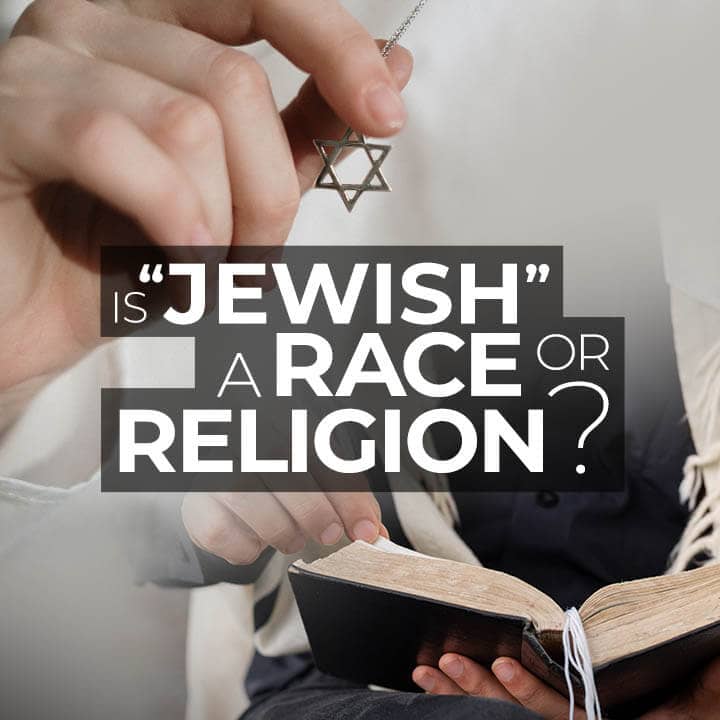The question, “Is Jewish a race, religion, or culture?” has been debated for centuries. It’s a complex issue, often intertwined with prejudice and misunderstanding. Imagine walking into a synagogue for the first time. The beautiful stained glass, the prayers in Hebrew, the sense of community – it’s easy to feel like you’ve stepped into another world. But is this just a “religion” or is something deeper at play?

Image: tdmlibrary.thediversitymovement.com
This article delves into the intricacies of Jewish identity, exploring its multifaceted nature and challenging common misconceptions. Understanding this issue isn’t merely academic. It’s about promoting empathy and dismantling harmful stereotypes that have plagued Jewish communities for far too long.
Beyond the Labels: Defining Jewish Identity
The simple answer is that Jewish identity is all three: race, religion, and culture. It’s a combination of biological, religious, and cultural elements that have woven together over thousands of years.
Religion: Judaism is a religion with ancient roots, codified in the Torah. It encompasses a unique set of beliefs, practices, and rituals, including the observance of holidays like Passover and Rosh Hashanah, dietary laws, and a strong emphasis on ethical living.
Culture: Jewish culture is rich and diverse, encompassing traditions, customs, food, music, literature, and art. From Yiddish theater to Israeli folk music, the tapestry of Jewish culture is vibrant.
Race: While recognizing the problematic nature of racial categorization, it’s important to acknowledge the historical context. Jewish people have often been treated as a distinct racial group, facing discrimination and persecution. This perception is rooted in a blend of antisemitism and the notion of Jewish people as a “chosen people.”
Historical Roots of Jewish Identity
To grasp the complexity of Jewish identity, we must journey back in time. Jews trace their origins to the ancient Israelites and the covenant God made with Abraham. This religious foundation, coupled with shared history and cultural practices, has shaped the Jewish experience.
However, the notion of Jewish people as a distinct “race” is a modern construct. Jews have lived across diverse geographic locations, intermingling with various populations. This reality challenges the notion of a fixed, racially homogeneous group. Antisemitism often fueled the “Jewish race” concept, portraying Jewish people as an alien and dangerous force in society.
The Intertwined Elements
The three aspects of Jewish identity are not separate compartments but interwoven threads in the fabric of Jewish experience.
Religion as Culture: Religious practices like the Sabbath, dietary laws, and holidays deeply imbue Jewish culture. They create a shared experience and strengthen the sense of community.
Culture as a Bridge: Jewish cultural expressions, from food to music, serve as vital connections across generations and geographic boundaries. The act of sharing a Shabbat meal, for instance, transcends regional differences, forging a sense of shared heritage.
Race and its Historical Impact: Though “Jewish” is not a biological or genetic category, the experience of racialization has significantly impacted Jewish communities. Antisemitism often manifests as racial prejudice, fueling acts of violence and discrimination.

Image: www.patheos.com
Moving Beyond the Debate
The debate over “race, religion or culture” may seem like a semantic quibble, but it’s more than that. It reflects a deep-seated struggle to understand and define Jewish identity. Ultimately, Jewish identity is a complex and evolving concept. It’s not about fitting into neat categories but about embracing the richness and complexity that come from this unique blend of faith, culture, and history.
Empowering Action: Combatting Stereotypes
Understanding the nuances of Jewish identity is crucial for challenging stereotypes and combating prejudice. Being informed allows us to:
- Recognize and challenge harmful stereotypes: Instead of accepting assumptions about “Jewishness,” we can engage in thoughtful discourse, promoting accurate representation.
- Support diversity within Jewish communities: Acknowledging the wide range of backgrounds and viewpoints within Jewish communities fosters inclusion and understanding.
- Promote dialogue and empathy: Opening conversations about Jewish identity can help bridge divides and build bridges of understanding.
Is Jewish A Race Religion Or Culture
Conclusion
The question of whether Jewish identity is “race, religion, or culture” is meant to be wrestled with, not answered definitively. It’s a reflection of the complexity and evolution of this diverse and vibrant community. Through understanding, empathy, and open dialogue, we can dismantle prejudices and celebrate the richness of Jewish identity in all its multifaceted glory.






